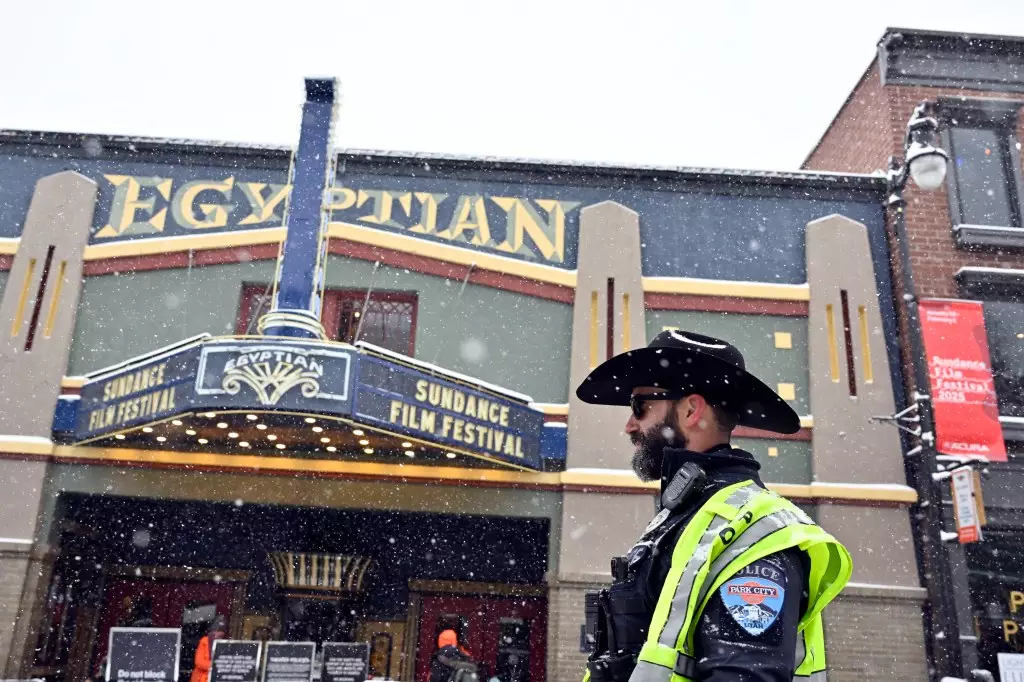As the deadline looms for Utah’s governor to make a critical decision regarding House Bill 77, a proposed ban on the Pride Flag in state-supported venues, the repercussions of this legislative move are already palpable. The once strong local ties that supported the Sundance Film Festival—an art and cultural icon founded by celebrity Robert Redford—are under siege from a political climate increasingly hostile to LGBTQ+ rights. The rhetoric around this bill reflects deeper societal tensions, making it clear that Utah’s legislative choices may fundamentally alter the landscape for cultural events, which include the Sundance Festival cherished by so many.
The Weight of Political Decisions
Park City Mayor Nann Worel’s remarks illustrating her concern about the potential fallout from recent legislation could not have been more poignant. She has tirelessly advocated to keep the festival thriving in its home state, but the passage of the anti-Pride flag bill has cast a long shadow over these efforts. The Governor, Spencer Cox, is now caught in a dilemma that resonates beyond politics; he must navigate public opinion, economic implications, and the moral responsibility of leadership. Choosing to sign the bill could alienate not just festival enthusiasts but also potential visitors who support diversity and inclusivity—values that Sundance symbolizes.
With a hefty $34 million incentive being waved by Boulder, Colorado, alongside Cincinnati’s firm bid, Utah’s chances of retaining the festival are dwindling rapidly. The Governor’s seemingly half-hearted commitment, demonstrated by the mobilization of $3.5 million in funds to entice Sundance to stay, juxtaposes sharply with the harsh realities signaled by House Bill 77. If Sundance were to bow out in search of a more hospitable home, the state wouldn’t just lose an economic asset; it would lose a cultural touchstone that has connected people from all backgrounds for 40 years.
A Clash of Values: Tradition vs. Progress
The unfortunate irony is that this conflict between the conservative forces championing the Pride flag ban and the progressive ideals embodied by the Sundance Festival represents a clash of values that could spell disaster for Utah’s cultural fabric. House Bill 77, enthusiastically backed by legislators like Rep. Trevor Lee and Sen. Daniel McCay, is perceived by many as an affront to everything Sundance represents—vibrancy, inclusivity, and an unyielding embrace of diverse narratives. The negative implications of this legislative move extend far beyond the immediate problem; they signal a troubling trend toward intolerance that could further isolate Utah culturally and economically.
Despite vocal opposition from local leaders, including Salt Lake City Mayor Erin Mendenhall, the prevailing conservative mindset in the legislature shows little regard for the implications of their actions. This is not merely a legislative fight; it’s a struggle for the very identity of Utah and how it wishes to be perceived within the broader national conversation about diversity and acceptance.
Breaking Ties: A Cultural Shift on the Horizon
In her recent speech to park city luminaries, Worel acknowledged the inevitability of change should the festival decide to relocate, emphasizing her pride in Park City’s efforts regardless of the outcome. “We will not only survive, we will thrive,” she said, showcasing resilience in the face of adversity. However, this kind of stoic optimism can hardly mask the urgency of the situation. If the festival departs, Utah risks morphing into a state known not for its scenic beauty and culture but as a symbol of regressive values.
As the tension escalates, it remains to be seen how Sundance’s decision will serve as a litmus test for the broader political and cultural climate in Utah. The festival acts as a beacon for creativity, dialogue, and inclusivity—in stark contrast to the narrative advanced by certain lawmakers seeking to restrict expressions of identity.
The Role of Leadership in Cultural Dialogue
With the weighty decision looming for Governor Cox, the implications extend beyond policy. This decision has become a referendum on the future of artistic expression in Utah, a role that leaders must embrace with empathy and foresight. A politically savvy leader should recognize that embracing diversity enriches society, drawing artists, filmmakers, and audiences eager to explore ideas that challenge, provoke, and inspire.
If signed into law, House Bill 77 may amplify the rift between progressive values and conservative ideologies, pushing cultural institutions, events, and even individuals to reconsider their relationship with Utah. As the state approaches this pivotal moment, it stands at the crossroads of history, with the possibility of fostering a climate of inclusion or slipping into a legacy of cultural repression. In the face of this daunting election, the response must be resolute—a future that celebrates film, art, and identity rather than constraining them.


Leave a Reply